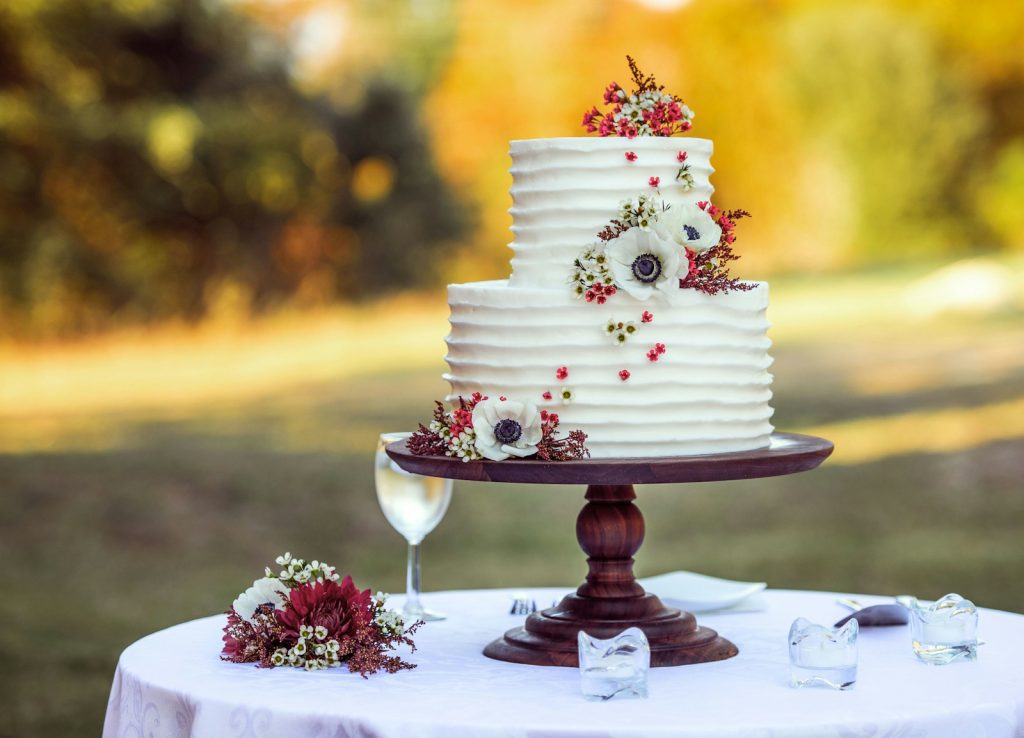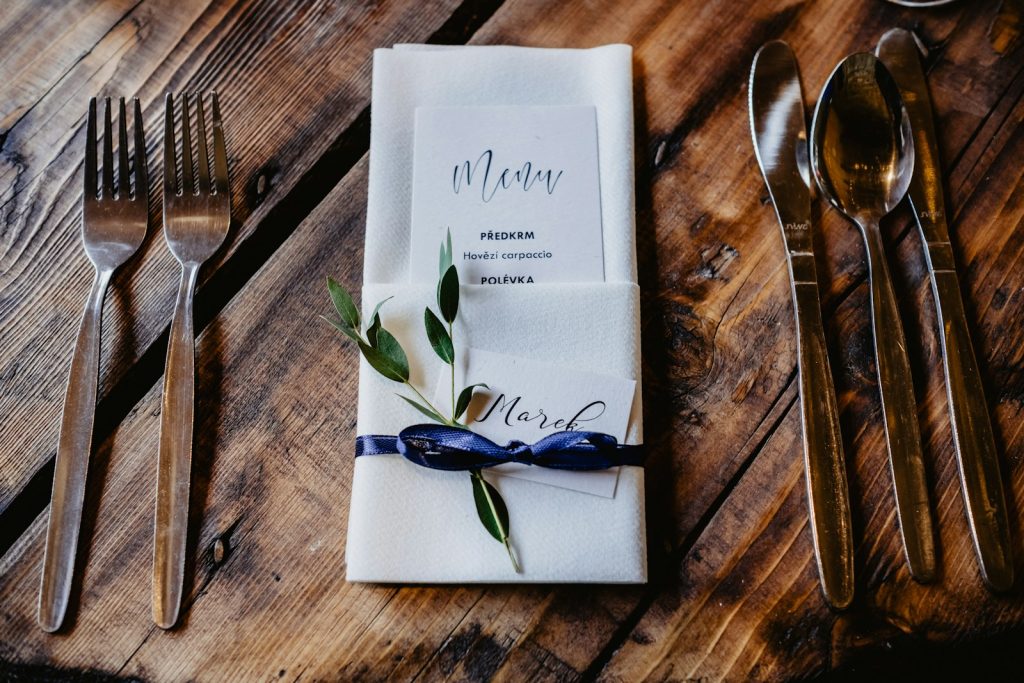Regardless of the size of your event, you need to know Catering for Different Wedding Sizes has its own dynamics and while the perfect wedding involves many decisions, one of the most critical is choosing the right Gold Coast Wedding Catering Company for your special day. Whether you’re planning a small, intimate gathering or a large, grand celebration, selecting the best wedding catering services can make all the difference. This guide will explore everything you need to know about Affordable Wedding Catering for different wedding size, including customizable menus, budget-friendly options, and expert tips to ensure a memorable feast.
Understanding The Complexity of Catering for Wedding Sizes
When it comes to wedding planning, the size of your guest list plays a significant role in determining the type of catering that will best suit your event. Understanding what constitutes small, medium, and large weddings can help you make informed decisions.
Before diving into the specifics of catering, it’s important to define what constitutes small, medium, and large weddings. Each size category comes with its own set of challenges and opportunities, and understanding these can help you plan more effectively.
- Definition of Wedding Sizes:
- Small Weddings: Typically, a small wedding has up to 50 guests. These intimate gatherings allow for more personalized service and detailed attention.
- Medium-Sized Weddings: These weddings generally have between 50 to 150 guests, striking a balance between intimacy and scale.
- Large Weddings: Large weddings include over 150 guests and require extensive planning and resources to manage the significant number of attendees.
- Importance of Understanding Wedding Sizes:
- Helps in precise menu planning and portion control.
- Influences staffing and equipment needs.
- Affects the overall budget and logistics.
| Wedding Size | Guest Count | Key Considerations |
|---|---|---|
| Small | Up to 50 | Personalized service, detailed attention, gourmet options |
| Medium | 50-150 | Balance of variety and volume, moderate complexity |
| Large | 150+ | Extensive planning, bulk preparation, multiple service points |
Small size Weddings (Up to 50 Guests)
Small weddings are intimate and personal and demand planning for Casual Wedding Catering Styles, allowing for more detailed and customized catering options. for wedding catering for small guest lists, you can choose from gourmet plated dinners to elegant family-style meals means Creating a Cozy Wedding Atmosphere that foster a sense of community among your guests.
Benefits:
- Personalization: Gourmet catering for small weddings allows more scope for Personalized wedding menu options.
- Interaction: Offering interactive dining experiences encourages guests can interact more closely.
- Quality: Potentially higher quality dishes due to smaller quantity requirements.
Medium Weddings (50-150 Guests)
Medium-sized weddings strike a balance between intimacy and celebration. Catering for this size often involves a variety of options, from buffets to plated dinners, ensuring there is something for everyone while managing portion sizes effectively.
Benefits:
- Variety: More menu options to cater to diverse tastes.
- Flexibility: Various catering styles can be applied.
- Cost-Effective: Can balance between high-end and budget-friendly options.
Large Weddings Food (150+ Guests)
Large weddings require meticulous planning and coordination. buffet vs plated wedding catering and stations are popular choices for large gatherings as they offer variety and allow guests to serve themselves at their convenience. It’s crucial to work with experienced caterers who can handle the logistics of feeding a large crowd.
Benefits:
- Efficiency: Buffet Theme Ideas and stations can serve many guests quickly.
- Variety: Broad selection of dishes.
- Scalability: Easily scaled to accommodate more guests.

Catering Options for Smaller Weddings
Catering for small weddings offers a unique opportunity to create an intimate and highly personalized dining experience. With fewer guests, you can focus on intricate details and high-quality ingredients, making each dish memorable.
- Benefits of Small Wedding Catering:
- Greater flexibility in menu choices and presentation.
- Ability to incorporate gourmet and specialty items.
- Enhanced interaction between guests and catering staff.
- Menu Ideas for Intimate Gatherings:
- Gourmet Appetizers: Think artisanal cheese platters, gourmet bruschettas, and bespoke canapés or go for Seasonal Wedding Menu Ideas
- Plated Dinners: Offering a multi-course meal with options like seared scallops, filet mignon, and decadent desserts.
- Interactive Food Stations: Sushi bars, charcuterie boards, and live cooking stations.
| Menu Item | Description | Estimated Cost per Person |
|---|---|---|
| Artisanal Cheese Platters | Selection of local and imported cheeses | $15-$20 |
| Seared Scallops | Served with lemon-butter sauce | $25-$30 |
| Sushi Bar | Assorted sushi rolls and sashimi | $20-$25 |
| Filet Mignon | Cooked to order, served with sides | $30-$40 |
- Personalized Service and Attention to Detail:
- Custom menus tailored to the couple’s preferences.
- Specialty cocktails and personalized drink menus.
- Decorative touches that reflect the couple’s style and theme.
- Examples of Successful Small Wedding Catering Setups:
- A garden wedding with a picnic-style DIY Wedding Buffet.
- An elegant rooftop dinner with a cityscape view.
- A cozy indoor gathering with a home-cooked feel.
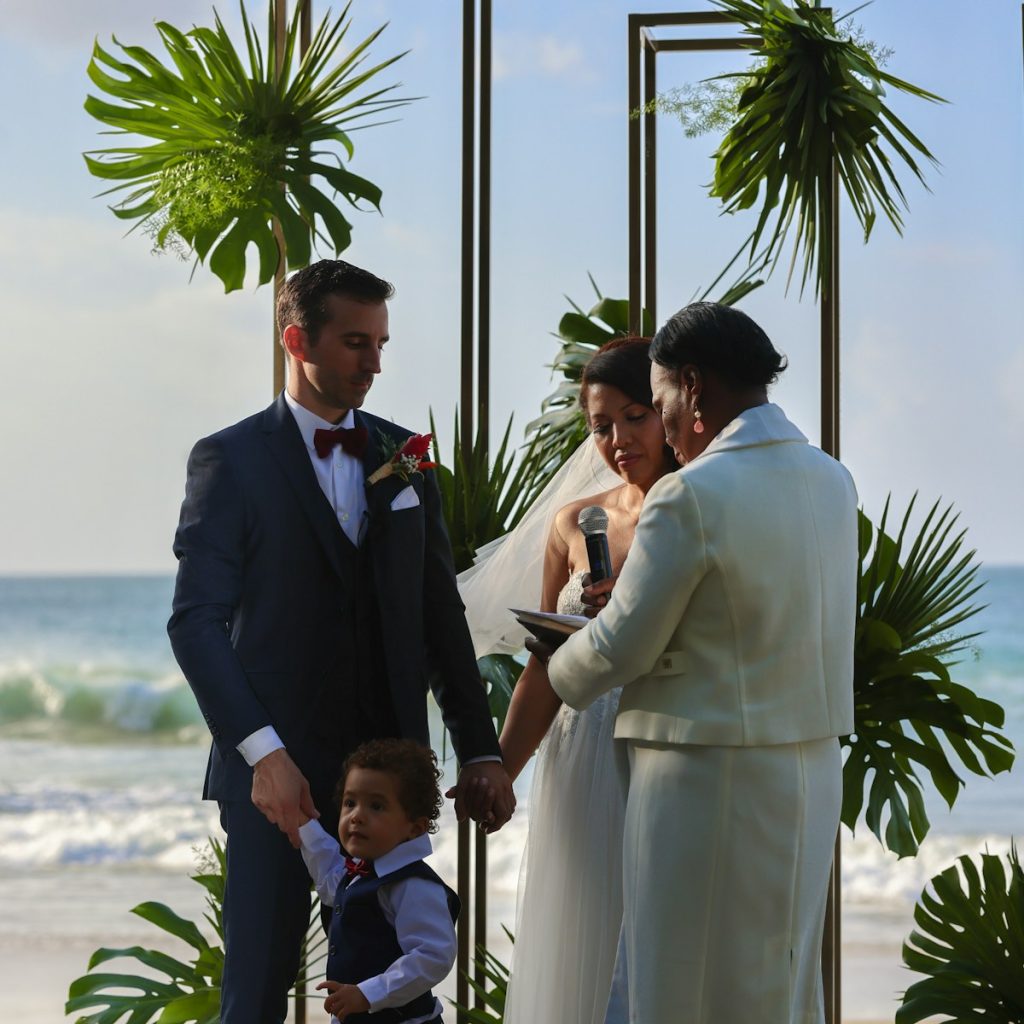
Catering options for Medium-Sized Weddings
Medium-sized weddings blend the best of both worlds, offering a festive atmosphere without the complexities of a large crowd. Catering for such events requires balancing variety and volume, ensuring each guest has a delightful experience.
- Balance Between Intimacy and Celebration:
- Maintaining a personal touch while catering to a diverse group.
- Creating a lively yet manageable dining experience.
- Menu Options That Cater to Diverse Tastes:
- Buffet Style: Offering a range of dishes like roasted chicken, vegetarian lasagna, and fresh salads. Don’t forget guests with diets like options for Vegetarian Wedding Menu Planning.
- Family-Style Service: Shared platters of meats, sides, and desserts.
- Cocktail Reception: A variety of bite-sized hors d’oeuvres and drink pairings.
| Menu Style | Example Dishes | Estimated Cost per Person |
|---|---|---|
| Buffet | Roasted chicken, vegetarian lasagna, salads | $20-$30 |
| Family-Style | Platters of meats, sides, desserts | $25-$35 |
| Cocktail Reception | Bite-sized hors d’oeuvres, drinks | $15-$25 |
- Logistics and Staffing Considerations:
- Ensuring adequate staff-to-guest ratio for efficient service.
- Coordinating with the venue for setup and flow.
- Case Studies or Examples of Medium-Sized Wedding Catering:
- A beach wedding with a seafood-focused buffet.
- A rustic barn wedding with farm-to-table dining.
- A modern urban wedding with a mix of traditional and contemporary dishes.
Medium-sized weddings require a balance of variety and efficiency in catering. Here are some popular options:
Small and Mixed Buffet
Small Buffets are an excellent choice for medium weddings as they offer a wide range of dishes and desserts like Geode Wedding Cakes, allowing guests to choose what they like. This style is flexible and can accommodate different dietary preferences easily.
Menu Example:
| Category | Options |
|---|---|
| Salads | Caesar, Greek, Mixed greens |
| Proteins | Roast beef, Grilled chicken, Salmon |
| Sides | Mashed potatoes, Rice pilaf, Grilled veggies |
| Desserts | Cheesecake, Brownies, Fresh fruit |
Pros:
- Variety of choices for guests.
- Guests can choose their portion sizes.
- Can accommodate dietary restrictions.
Similar to buffets, stations involve multiple serving areas, each offering different types of food. This setup reduces wait times and encourages guests to explore various culinary options.
Menu Example:
| Station | Offerings |
|---|---|
| Carving Station | Prime rib, Honey-glazed ham |
| Pasta Station | Penne Alfredo, Spaghetti Bolognese |
| Salad Station | Mixed greens, Caesar, Build-your-own salad |
| Dessert Station | Cupcakes, Mini tarts, Chocolate fountain |
Pros:
- Reduces lines and wait times.
- Interactive and fun for guests.
- Allows for a wide variety of food options.
Interactive Food catering Stations Different wedding size
Add a fun and interactive element to your wedding with stations where guests can watch chefs prepare their meals. Sushi bars, pasta stations, and carving stations are popular choices.
Menu Example:
| Station | Offerings |
|---|---|
| Sushi Station | Rolls made to order, Sashimi, Nigiri |
| Pasta Station | Customizable pasta dishes with various sauces |
| Carving Station | Roast beef, Turkey, Grilled vegetables |
| Dessert Station | Crepes made to order, Ice cream sundaes |
Pros:
- Highly engaging for guests.
- Customizable food options.
- Adds an entertainment element to the meal.
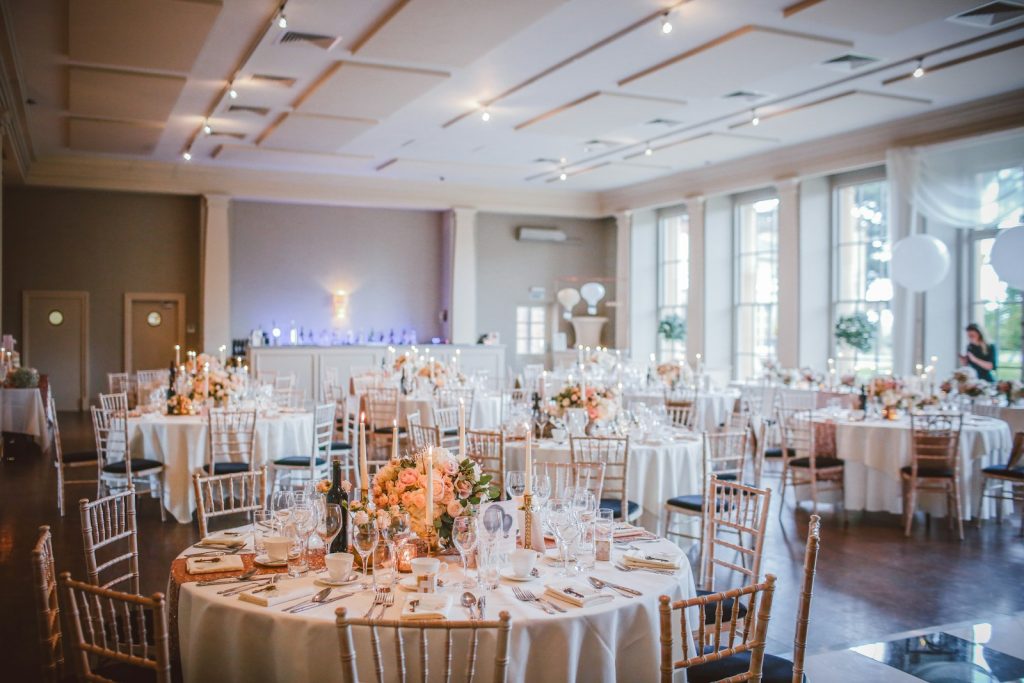
Catering for Large Weddings
Large weddings are grand affairs that require meticulous planning and execution. Catering for such events means managing significant quantities while maintaining high standards of quality and service.
- Unique Challenges of Large Wedding Catering:
- Ensuring food quality and temperature for large volumes.
- Coordinating multiple service points and staff teams.
- Efficient Menu Planning for Large Crowds:
- Buffet Stations: Multiple stations with different cuisines to reduce lines and wait times.
- Plated Dinners: Pre-selected and Sophisticated Wedding Menu to streamline kitchen operations.
- Dessert Stations: Assorted desserts displayed attractively for easy access.
| Menu Type | Example Stations | Estimated Cost per Person |
|---|---|---|
| Buffet Stations | Italian, Asian, Mexican cuisine stations | $25-$35 |
| Plated Dinners | Pre-selected entrees, sides, desserts | $30-$40 |
| Dessert Stations | Assorted cakes, pastries, and desserts | $10-$20 |
- Tips for Managing Bulk Food Preparation and Service:
- Pre-preparation and efficient storage solutions.
- Real-time coordination and communication among staff.
- Success Stories of Large Wedding Catering Events:
- A grand ballroom wedding with an international cuisine buffet.
- An outdoor marquee wedding with themed food stations.
- A luxury hotel wedding with multiple courses and Wine Pairing for Weddings.
Catering Options for Large Weddings
Catering for large weddings can be challenging, but with the right planning, it can be a seamless experience. Consider these options:
Open Buffet Style
Buffets are ideal for large weddings as they allow guests to serve themselves and offer a variety of choices. Ensure you have multiple buffet lines to avoid long queues.
Menu Example:
| Category | Options |
|---|---|
| Salads | Garden, Potato, Coleslaw |
| Proteins | Roast turkey, BBQ ribs, Baked salmon |
| Sides | Mac and cheese, Roasted potatoes, Corn |
| Desserts | Pies, Cookies, Fresh fruit |
Pros:
- Efficient for serving large numbers.
- Offers a variety of food choices.
- Flexible to accommodate dietary needs.
Interactive Food Stations are entertaining
Similar to buffets, live cooking and food stations can help manage the flow of guests and provide diverse culinary options. This style is especially effective in large and Luxury Wedding Venues in Gold Coast with ample space.
Menu Example:
| Station | Offerings |
|---|---|
| BBQ Station | Ribs, Pulled pork, Grilled chicken |
| Seafood Station | Shrimp cocktail, Oysters, Crab legs |
| Vegetarian Station | Grilled veggies, Stuffed mushrooms |
| Dessert Station | Assorted cakes, Chocolate fondue |
Pros:
- Efficiently manages guest flow.
- Provides a diverse range of options.
- Can be tailored to specific themes or cuisines.

Budgeting for Different Wedding Sizes
KNowing How to Budget for Wedding Catering is a critical component of wedding planning. Understanding the cost implications of catering for different wedding sizes helps in making informed decisions without compromising on quality.
- Cost Considerations for Small, Medium, and Large Weddings:
- Small Weddings: Higher per-person cost for weddings but lower overall expenditure.
- Medium Weddings: Balanced budget with moderate per-person cost.
- Large Weddings: Lower per-person cost due to bulk purchasing.
| Wedding Size | Estimated Cost per Person | Total Estimated Cost (based on average guest count) |
|---|---|---|
| Small | $50-$100 | $2,500-$5,000 (for 50 guests) |
| Medium | $30-$70 | $4,500-$10,500 (for 150 guests) |
| Large | $20-$50 | $3,000-$7,500 (for 150 guests) |
- Strategies to Optimize Budget Without Compromising Quality:
- Prioritizing essential items and cutting unnecessary costs.
- Negotiating with vendors for better deals.
- Opting for seasonal and local ingredients to reduce costs.
- Examples of Budget Breakdowns for Different Wedding Sizes:
Small Wedding Budget Breakdown:
| Item | Estimated Cost |
|---|---|
| Gourmet Appetizers | $750 |
| Plated Dinner | $2,000 |
| Beverage Service | $1,000 |
| Staffing | $500 |
| Total | $4,250 |
Medium Wedding Budget Breakdown:
| Item | Estimated Cost |
|---|---|
| Buffet Style | $3,000 |
| Family-Style Service | $2,500 |
| Beverage Service | $2,000 |
| Staffing | $1,500 |
| Total | $9,000 |
Large Wedding Budget Breakdown:
| Item | Estimated Cost |
|---|---|
| Buffet Stations | $3,500 |
| Plated Dinners | $2,500 |
| Dessert Stations | $1,500 |
| Beverage Service | $2,000 |
| Staffing | $1,500 |
| Total | $11,000 |
Menu Planning for Different Wedding Sizes
Menu planning is at the heart of successful wedding catering. Tailoring the menu to the wedding size ensures that the food is not only delicious but also appropriately portioned and served.
- Tailoring the Menu to the Wedding Size:
- Adjusting portion sizes and variety based on guest count.
- Incorporating seasonal and locally sourced ingredients.
- Popular Menu Choices for Small, Medium, and Managing Catering for Large Guest Lists:
- Small Weddings: Seasonal tasting menus, gourmet entrees.
- Medium Weddings: Diverse buffets, interactive food stations.
- Large Weddings: Plentiful buffets, multiple dessert options.
| Wedding Size | Menu Ideas | Estimated Cost per Person |
|---|---|---|
| Small | Tasting menus, gourmet entrees | $30-$50 |
| Medium | Buffets, interactive food stations | $20-$35 |
| Large | Diverse buffets, multiple dessert options | $25-$40 |
- Dietary Considerations and Customization:
- use out Dietary Restrictions Guide for Addressing dietary restrictions (vegan, gluten-free, etc.).
- Offering customizable options to cater to various preferences.
- Beverage Catering Tips for Various Wedding Sizes:
- Crafting a drink menu that complements the food.
- Providing a mix of alcoholic and non-alcoholic beverages.
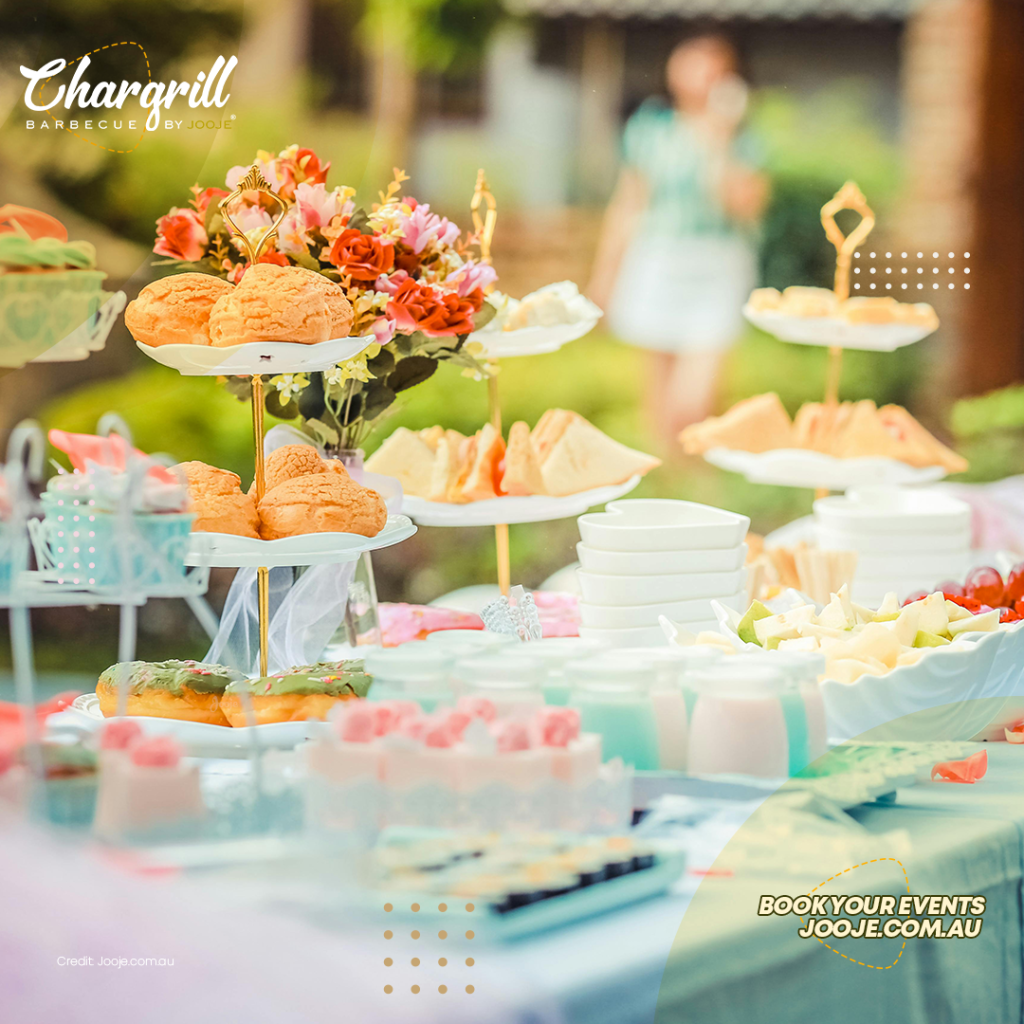
Popular Options for Different Weddings Sizes
Small weddings offer the unique opportunity to personalize every aspect of your catering. Here are some catering styles that work well for intimate gatherings:
Gourmet Plated Dinners
Plated dinners are a classic choice for small weddings. This catering style involves serving a multi-course meal to guests at their tables, allowing for elegant presentations and a refined dining experience.
Menu Example:
| Course | Options |
|---|---|
| Appetizer | Seared scallops, truffle oil risotto |
| Main Course | Filet mignon with garlic mashed potatoes, Grilled salmon with asparagus |
| Dessert | Chocolate lava cake, Crème brûlée |
Pros:
- Elegant and formal dining experience.
- Controlled portions.
- Can showcase gourmet dishes.
Family Wedding Catering Pros and Cons
Family-style catering involves placing large platters of food on each table, encouraging guests to serve themselves and interact with one another. This style creates a warm, communal atmosphere that is perfect for intimate weddings.
Menu Example:
| Course | Options |
|---|---|
| Appetizer | Antipasto platter, Caprese salad |
| Main Course | Roast chicken, Grilled vegetables |
| Side Dishes | Garlic bread, Caesar salad |
| Dessert | Assorted mini pastries, Fresh fruit platter |
Pros:
- Encourages guest interaction.
- Creates a cozy, communal vibe.
- Offers variety on each table.
Cocktail Receptions
For a more relaxed and social setting, consider a cocktail reception. This option features a variety of hors d’oeuvres and small bites, allowing guests to mingle and enjoy a wide range of flavors without the formality of a sit-down meal.
Menu Example:
| Item | Description |
|---|---|
| Canapés | Smoked salmon, avocado toast |
| Miniature Quiches | Spinach and cheese, Bacon and leek |
| Skewers | Chicken satay, Caprese on a stick |
| Desserts | Chocolate truffles, Mini cheesecakes |
Pros:
- Highly social and interactive.
- Guests can sample a variety of foods.
- Flexible and can accommodate dietary restrictions.
Pre-Plated Options
To streamline service, consider pre-plating salads and desserts while offering a buffet or family-style main course. This hybrid approach can help manage portion sizes and ensure a smooth dining experience.
Menu Example:
| Course | Options |
|---|---|
| Appetizer | Pre-plated salad, Pre-plated soup |
| Main Course | Buffet or family-style entrees and sides |
| Dessert | Pre-plated desserts, Coffee service |
Pros:
- Combines the benefits of both buffet and plated styles.
- Efficient for serving large numbers.
- Ensures portion control for certain courses.
One of the key advantages of working with professional caterers is the ability to customize your menu. Customizable menus ensure that your wedding catering meets your exact preferences and requirements, from dietary restrictions to cultural cuisines.
Benefits:
- Personalization: Tailor the menu to your tastes, incorporating favorite dishes, seasonal ingredients, or themed items.
- Flexibility: Adjust the menu to suit different dietary needs, including vegetarian, vegan, gluten-free, and allergen-friendly options.
- Uniqueness: Create a one-of-a-kind dining experience that reflects your personality and the theme of your wedding.
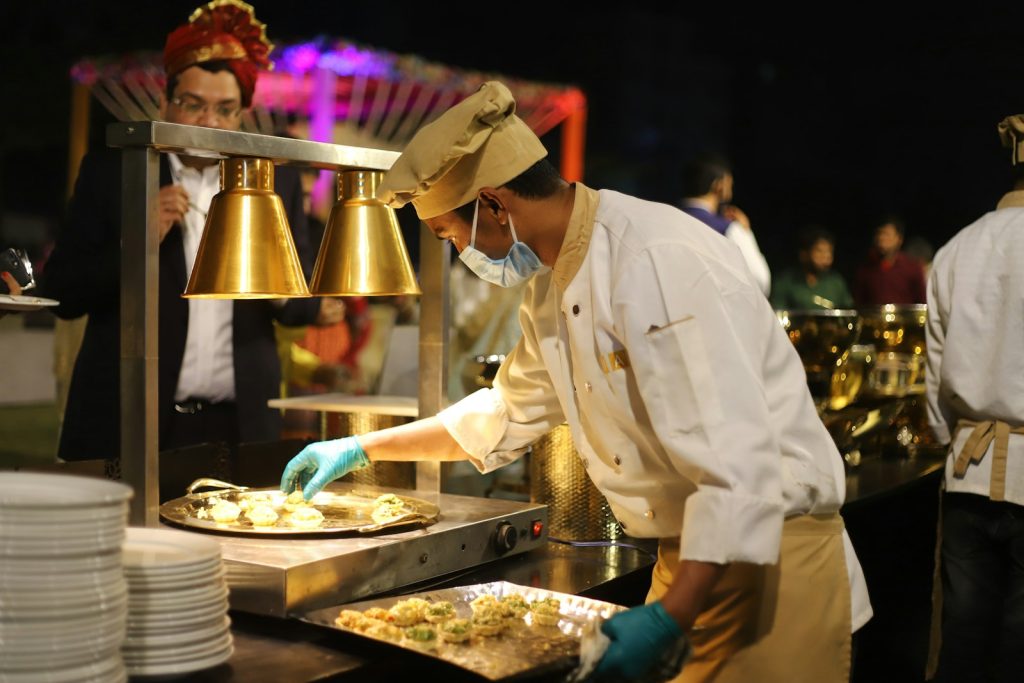
Talk to your caterer about Customisable Menus
Customizable menus offer several advantages:
- Satisfying Diverse Palates: With a customizable menu, you can ensure that all guests, regardless of dietary preferences or restrictions, can enjoy the meal. This is particularly important for weddings with a diverse guest list.
- Seasonal Freshness: Using seasonal ingredients not only enhances the flavors of the dishes but also supports local farmers and reduces the carbon footprint.
- Cultural Significance: Customizable menus allow for the inclusion of culturally significant dishes, making the wedding meal more meaningful and personal.
- Enhanced Experience: A menu tailored to your tastes and the theme of your wedding can significantly enhance the overall guest experience, making your wedding day even more memorable.
Standard Menu Customisations:
| Course | Options |
|---|---|
| Appetizers | Bruschetta, Shrimp cocktail, Stuffed mushrooms |
| Main Courses | Prime rib, Grilled salmon, Vegetable lasagna |
| Sides | Garlic mashed potatoes, Roasted vegetables |
| Desserts | Tiramisu, Lemon tart, Assorted cookies |
Themed Menu Customisations:
| Theme | Appetizers | Main Courses | Desserts |
|---|---|---|---|
| Italian | Antipasto platter, Caprese salad | Chicken Parmesan, Spaghetti Carbonara | Tiramisu, Cannoli |
| Asian Fusion | Sushi rolls, Spring rolls | Teriyaki chicken, Pad Thai | Green tea ice cream, Mochi |
| Mediterranean | Hummus and pita, Greek salad | Lamb kebabs, Falafel | Baklava, Honey cake |
Seasonal Menu Customizations:
| Season | Appetizers | Main Courses | Desserts |
|---|---|---|---|
| Spring | Asparagus tart, Pea soup | Roast lamb, Lemon chicken | Strawberry shortcake, Lemon bars |
| Summer | Gazpacho, Watermelon salad | Grilled seafood, BBQ beef dinosaur ribs | Berry trifle, Peach cobbler |
| Fall | Butternut squash soup, Pear salad | Pumpkin ravioli, Braised beef | Apple pie, Pecan tart |
| Winter | French onion soup, Roasted chestnuts | Roast turkey, Beef stew | Gingerbread cake, Chocolate fondue |

Budget Considerations
Budget is a crucial factor when planning wedding catering. Understanding how different catering styles and options impact your budget can help you make informed decisions.
Cost Breakdown of Catering Styles
| Buffet Style Items | Cost Estimate (Per Person) |
|---|---|
| Food | $20 – $50 |
| Service staff | $100 – $200 (per staff) |
| Rentals (tables, linens) | $500 – $1500 |
| Formal Dinner Item | Cost Estimate (Per Person) |
|---|---|
| Food | $30 – $100 |
| Service staff | $200 – $400 (per staff) |
| Rentals (tables, linens) | $500 – $1500 |
| Family Meals & Other Items | Cost Estimate (Per Person) |
|---|---|
| Food | $25 – $70 |
| Service staff | $150 – $300 (per staff) |
| Rentals (tables, linens) | $500 – $1500 |
Tips for Budget-Friendly Catering
- Simplify the Menu: Focus on a few key dishes rather than a wide variety. This can help reduce costs while still providing a satisfying meal.
- Seasonal Ingredients: Using seasonal and local ingredients can reduce costs and ensure fresh, flavorful dishes.
- Self-Service Options: Buffets or food stations can be more cost-effective than plated dinners, reducing the need for extensive wait staff.
- Drink Options: Offer a limited selection of beverages, such as a signature cocktail, to manage alcohol costs.
- Negotiate with Vendors: Discuss your budget with potential caterers and see if they can create a package that fits your financial constraints.
Seasonal and Themed Catering
Choosing seasonal and themed catering can add a unique and memorable touch to your wedding. Seasonal ingredients ensure fresh, flavorful dishes, while themed menus can reflect your personal tastes or wedding theme.
Benefits of Seasonal Catering
- Freshness: Seasonal ingredients are at their peak flavor and quality.
- Cost-Effective: In-season produce is often more affordable, however you should be aware of drawbacks of Cheap Catering.
- Sustainability: Using local, seasonal ingredients reduces the carbon footprint associated with transporting food.
Examples of Seasonal Menus
Spring Menu:
| Course | Options |
|---|---|
| Appetizers | Asparagus tart, Spring pea soup |
| Main Courses | Lamb chops with mint, Lemon herb chicken |
| Sides | Roasted new potatoes, Fresh greens |
| Desserts | Strawberry shortcake, Lemon bars |
Summer Menu:
| Course | Options |
|---|---|
| Appetizers | Gazpacho, Watermelon feta salad |
| Main Courses | Grilled salmon, BBQ chicken |
| Sides | Corn on the cob, Mixed berry salad |
| Desserts | Peach cobbler, Blueberry pie |
Fall Menu:
| Course | Options |
|---|---|
| Appetizers | Pumpkin soup, Pear and blue cheese salad |
| Main Courses | Roast turkey, Butternut squash risotto |
| Sides | Mashed sweet potatoes, Brussels sprouts |
| Desserts | Apple pie, Pecan tart |
Winter Menu:
| Course | Options |
|---|---|
| Appetizers | French onion soup, Roasted chestnuts |
| Main Courses | Beef stew, Roast pork loin |
| Sides | Root vegetable medley, Creamed spinach |
| Desserts | Gingerbread cake, Hot chocolate lava cake |
Themed Catering choices
Themed catering can add a fun and personalized touch to your wedding. Here are some creative Wedding Planning Ideas:
Cultural Themes:
| Theme | Appetizers | Main Courses | Desserts |
|---|---|---|---|
| Italian | Bruschetta, Caprese salad | Lasagna, Chicken Marsala | Tiramisu, Cannoli |
| Asian Fusion | Spring rolls, Dumplings | Sushi, Pad Thai | Mochi, Green tea ice cream |
Holiday Themes:
| Theme | Appetizers | Main Courses | Desserts |
|---|---|---|---|
| Christmas | Mini roast beef, Cranberry brie bites | Ham, Turkey | Christmas cookies, Yule log |
| Halloween | Pumpkin soup, Stuffed mushrooms | Roast chicken, Autumn stew | Pumpkin pie, Candy apples |
Custom Themes:
| Theme | Appetizers | Main Courses | Desserts |
|---|---|---|---|
| Rustic | Charcuterie board, Cornbread | BBQ ribs, Grilled vegetables | Apple pie, S’mores |
| Beach | Shrimp cocktail, Coconut shrimp | Grilled fish, Tropical chicken | Key lime pie, Mango sorbet |
Taster Sessions and Trials
Taster sessions and trials are an essential part of the wedding catering planning process and offer Immersive Culinary Experiences. They allow you to sample the food, ensure it meets your expectations, and make any necessary adjustments before the big day.
Benefits of Taster Sessions
- Quality Assurance: Ensures the food quality and taste meet your standards.
- Menu Customization: Allows you to make changes to the menu based on your preferences.
- Allergen Testing: Identifies any potential allergens and ensures safe options for guests with dietary restrictions.
- Presentation: Gives you a preview of how the food will be presented on your wedding day.
How to Plan a Taster Session
- Schedule Early: Book your taster session well in advance to allow time for any necessary changes.
- Bring Decision Makers: Invite key decision-makers, such as your partner, parents, or wedding planner.
- Take Notes: Record your thoughts on each dish, including taste, presentation, and any suggested changes.
- Ask Questions: Inquire about ingredient sourcing, preparation methods, and any customization options.
- Provide Feedback: Be honest with your feedback to ensure the final menu meets your expectations.
What to Expect During a Taster Session
A taster session typically includes a selection of dishes that represent the various courses of your wedding meal. This allows you to sample and compare different options and make informed decisions about your final menu.
| Course | Options |
|---|---|
| Appetizers | Sample a variety of canapés and starters such as bruschetta, mini quiches, and shrimp cocktail |
| Main Courses | Try several options for main dishes like grilled salmon, filet mignon, and vegetarian lasagna |
| Sides | Sample side dishes and accompaniments including mashed potatoes, roasted vegetables, and mixed greens |
| Desserts | Taste an assortment of desserts such as tiramisu, chocolate mousse, and fruit tarts |
Key Activities During a Taster Session
- Sampling Dishes: You will taste various dishes from each course to evaluate their flavor, presentation, and overall appeal.
- Discussion with the Chef: Engage in a conversation with the chef to understand the ingredients used, preparation methods, and any possible customizations.
- Feedback Session: Provide detailed feedback on each dish, noting any preferences, dislikes, or suggestions for improvement.
- Menu Adjustments: Based on your feedback, the caterer will suggest adjustments to tailor the menu to your preferences and dietary requirements.
- Presentation Review: Assess the presentation of each dish, as visual appeal is as important as taste in creating a memorable dining experience.
- Logistics Planning: Discuss logistical details such as the timeline for serving, the number of staff required, and any special equipment needed.
Benefits of Taster Sessions
- Quality Assurance: Taster sessions ensure that the food served at your wedding meets your expectations in terms of taste, quality, and presentation.
- Customization: They provide an opportunity to customize the menu to suit your preferences and dietary requirements.
- Confidence: Sampling the food in advance gives you confidence that your guests will enjoy their meal.
- Relationship Building: They help build a relationship with the caterer, ensuring smooth communication and collaboration on the day of the event.
Logistics and Coordination
Elaborative Opening: Effective logistics and coordination are crucial for the smooth execution of wedding catering, regardless of the size. This section covers the essential aspects of planning and managing the event.
- Staffing Requirements for Different Wedding Sizes:
- Determining the right staff-to-guest ratio.
- Roles and responsibilities of catering staff.
| Wedding Size | Staff-to-Guest Ratio | Typical Roles |
|---|---|---|
| Small | 1:10 | Chefs, servers, bartenders |
| Medium | 1:15 | Chefs, servers, bartenders, coordinators |
| Large | 1:20 | Chefs, servers, bartenders, managers |
- Equipment and Space Considerations:
- Ensuring adequate kitchen and service space.
- Rental needs for large events (tents, tables, chairs).
- Timing and Service Flow for Smooth Operations:
- Creating a detailed event timeline.
- Coordinating food service with the wedding schedule.
- Coordination with Other Vendors (e.g., Venue, Décor):
- Ensuring alignment with the venue’s facilities and restrictions.
- Collaborating with décor and event planners for seamless setup.
1. What are the best catering options for small weddings?
Small weddings, typically with up to 50 guests, benefit from personalized and intimate catering options. Popular choices include gourmet plated dinners, where a multi-course meal is elegantly served to each guest. Another great option is family-style meals, where dishes are placed on each table for guests to serve themselves, fostering a communal and cozy atmosphere. For a more casual feel, cocktail receptions with a variety of hors d’oeuvres and small bites are also ideal.
2. How can you cater to medium-sized weddings effectively?
For medium-sized weddings, with 50 to 150 guests, buffets and food stations are highly effective. Buffets offer a variety of dishes, allowing guests to choose their favorites and accommodate diverse dietary needs. Food stations, where guests can visit different areas for specific types of food (e.g., pasta station, carving station), reduce wait times and encourage mingling. Plated dinners are also an option, providing a more formal dining experience.
3. What are the most efficient catering styles for large weddings?
Large weddings, with over 150 guests, often require catering styles that can serve many people quickly and efficiently. Buffets and food stations are popular because they allow for a wide variety of food and self-service, which speeds up the process. Another option is Food trucks for wedding receptions, which provide a unique and interactive experience for guests, offering a range of menu items and reducing the need for extensive wait staff.
4. What should you consider when planning a family-style meal for a wedding?
Family-style meals involve serving large platters of food that guests share at each table. This style is great for fostering a sense of community and interaction. However, it requires careful planning to ensure tables are wide enough to accommodate the platters and that the serving process is organized to avoid confusion. Additionally, consider the extra cost of renting wider tables and additional serving utensils.
5. How do different wedding catering styles impact the budget?
The cost of wedding catering varies significantly based on the style. Buffets and family-style meals can be cost-effective but may lead to higher food costs due to the need to overestimate quantities. Plated dinners, while elegant, typically involve higher labor costs due to the need for more service staff. Food stations and cocktail receptions can be budget-friendly, depending on the complexity and variety of the menu items offered.

